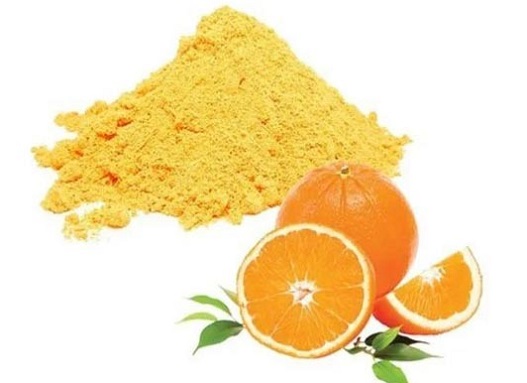Nikhil Prasad Fact checked by:Thailand Medical News Team Jul 27, 2024 8 months, 4 weeks, 21 hours, 5 minutes ago
Gastroenterology News: Introduction to a Silent Struggle
Millions of people around the world suffer from ulcerative colitis (UC), a type of inflammatory bowel disease (IBD) that causes persistent abdominal pain and diarrhea, often disrupting daily life. Current treatments for UC include a variety of medications, from anti-inflammatory drugs to biologics, but many patients do not achieve long-term remission. A recent study conducted by researchers from Zhejiang University School of Medicine and Jinan Microecological Biomedicine Shandong Laboratory-China that is covered in this
Gastroenterology News report has revealed that hesperetin, a natural compound found in citrus fruits, could offer new hope for UC sufferers.
 Citrus flavonoid Hesperetin shows promise for Colitis
What is Hesperetin?
Citrus flavonoid Hesperetin shows promise for Colitis
What is Hesperetin?
Hesperetin (HT) is a flavonoid commonly found in citrus fruits like lemons, oranges, and grapefruits. Known for its antioxidant and anti-inflammatory properties, hesperetin has been studied for its potential benefits in various diseases. This study delves into how hesperetin can help alleviate the symptoms of ulcerative colitis (UC).
How the Study Was Conducted
Researchers induced colitis in mice using a chemical called dextran sodium sulfate (DSS). The mice were then treated with hesperetin. Various indicators of colitis severity, such as body weight, colon length, and levels of inflammatory markers, were measured.
Key Findings
The findings of the study were promising:
-Reduction in Weight Loss: Mice treated with hesperetin showed significantly less weight loss compared to those not treated.
-Improvement in Colon Health: The treated mice had longer colons and less severe colonic lesions.
-Decrease in Inflammatory Markers: Levels of TNFα and IL6, which are markers of inflammation, were significantly reduced in the treated mice.
-Regulation of Ferroptosis: Ferroptosis is a form of cell death linked to oxidative stress. The study found that hesperetin regulated ferroptosis markers, such as PTGS2, ACSL4, and Gpx4, indicating a reduction in oxidative stress.
-Improvement in Gut Microbiota: Hesperetin increased the diversity of gut microbiota, which is often disrupted in UC patients. Beneficial bacteria were restored, and harmful bacteria were reduced.
Understanding the Mechanisms
To understand how hesperetin exerts these beneficial effects, the researchers employed bioinformatics, network pharmacology, and molecular docking techniques. These methods helped identify key targets and pathways influenced by hesperetin in UC.
-Bioinformatics and Pharmacology Network: The study identified 81 target genes influenced by he
speretin in UC. These genes were involved in various pathways, such as oxidative stress response and inflammatory signaling.
-Molecular Docking: This technique showed that hesperetin could bind effectively to proteins involved in UC, suggesting direct interactions that help modulate disease processes.
Verification and Experiments
Further experiments were conducted to verify the predictive targets of hesperetin in colitis. The researchers observed that hesperetin significantly downregulated the expression of key inflammatory genes in DSS-induced colitis.
Suppression of Ferroptosis
The study highlighted the role of ferroptosis in UC and how hesperetin helps suppress this process. Hesperetin was found to reduce lipid peroxidation and restore antioxidant enzyme levels in the colon, protecting cells from oxidative damage.
Effects on Gut Microbiota
Hesperetin also positively impacted the gut microbiota. The treated mice had a higher diversity of gut bacteria, with an increase in beneficial bacteria and a decrease in harmful ones. This suggests that hesperetin helps restore gut health, which is crucial in managing UC.
Conclusion
Hesperetin, a natural compound found in citrus fruits, shows great promise as a potential treatment for ulcerative colitis. Its ability to reduce inflammation, regulate ferroptosis, and improve gut microbiota makes it a compelling candidate for further research and development.
The study findings were published in the peer-reviewed journal: Nutrients.
https://www.mdpi.com/2072-6643/16/14/2343
For the latest
Gastroenterology News, keep on logging to Thailand Medical News.
Read Also:
https://www.thailandmedical.news/news/how-a-key-protein-hmgb1-can-influence-colitis-and-colon-cancer-development
https://www.thailandmedical.news/news/herbs-and-phytochemicals-oxymatrine-from-sophora-flavescens-provides-relief-for-ulcerative-colitis
